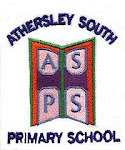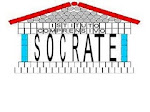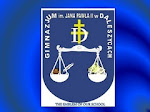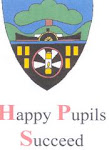Here are a few photos of us practising our Scottish Country Dance called "Strip The Willow." We are having lots of fun learning this dance and are looking forward to sharing it with you when we have learned all of the steps!
Monday, 29 March 2010
Hallglen Primary School - Scotland
Posted by Head of Muir Primary School at 12:38 0 comments
CEIP 8 de Abril - Spain
It's us again from San Antonio de Benagéber (Spain) and we want to show you our school with a video. We are 6th class and the oldest students in our school. We are 11-12 years old and we're not dancers but we want to try to dance it for all of you. We're going to dance a valencian folk dance called "La Magrana", it's a old symbolic dance dedicated to the people who worked making cloth, it's a dance performed by men, but we're going to change this, hahaha. It's great fun to dance and we hope you enjoy watching or maybe trying it yourself.
etwinning
Cargado por lanayosi. - Descubre más vídeos de animales.
Posted by Head of Muir Primary School at 08:08 1 comments
Saturday, 27 March 2010
Sandfields Comprehensive - Welsh Folk Dancing
Year 7 pupils at Sandfields Comprehensive are going to perform a traditional Welsh Folk Dance. Evolving from natural, spontaneous behaviour on festive occasions, Welsh folk dancing, or dawnsio gwerin in Welsh, developed through the centuries into set moves for single sex groups and groups of men and women usually to the accompainment of simple, handmade musical instruments.
With the advent of Non-Conformist sects in the 18th and 19th centuries, Welsh folk dancing was seen as a 'sinful' form of entertainment, and attempts were made to stamp out the dances throughout Wales. Therefore, for nearly 200 years, Welsh folk dancing played a very small part in Welsh culture.
It took the formation of the Welsh Folk Dancing Society in 1949 to promote folk dancing once more in Wales, and with the continuing resurgence in interest in Welsh culture, the popularity of folk dancing is once again on the rise, being seen as an important element of our rich culture here in Wales.
Posted by jacdor1011 at 17:43 0 comments
Friday, 26 March 2010
Şcoala Specială nr. 7 Romania -- Presentation
Our students will gladly take part at the Eurodance 2010 competition and will present Romanian folk dances. They are interested in watching the traditional dances of partner countries. The project will enable partners to share their culture and traditions and learn to respect other traditions. Students with special needs will better understand cultural diversity in Europe. This will improve their confidence. Students will work together, they will see how other students working in Europe. They will be able to communicate and make friends abroad and make contact with different cultures and environments.
Posted by Carmen Marilena at 19:06 0 comments
Scoil Pádraig Naofa, Ireland
Scoil Pádraig Naofa, Dysart, Co. Westmeath, Ireland.
Hello to all our partner schools in Europe from us all here in Scoil Pádraig Naofa in Dysart Ireland. We are delighted to be joining you on this very interesting project. We have enjoyed looking at your introductory videos which give us a glimpse of your schools & the wonderful work you do there. We hope you enjoy looking at our school & some of the activities we do. We are a small school in central Ireland. There are 44 pupils in our school & we like working on our computers.
In Ireland we have different types of dance. One is Step Dancing. This is usually done by specially trained dancers who take part in competitions called 'Feiseanna'. The well known 'River Dance' is danced by professional step dancers. Another type is 'Ceili' dancing & these are danced by 'ordinary' dancers. Another is 'Set Dancing' & these are complicated dances which have to be learned. We will be dancing a 'Ceilí' dance & ours is a traditional dance called 'The Siege of Ennis'. It consists of rows of dancers, with 4 in each row. The dancers go through various 'steps' & after each round is finished, each row is facing a new row of dancers & the round starts all over again. We are all looking forward to our 'Eurodance' Project.
Posted by mdaly at 18:45 3 comments
Labels: Eurodance 2010
Our dance - Şcoala Specială nr. 7 Romania
Our students will dance a suite of folk dances with Horă elements, specific to Romania.
Hora is a type of circle dance originating in the Balkans but also found in other countries. Hora (pl. hore) is a traditional Romanian folk dance that gathers everyone into a big closed circle. The dancers hold each other's hands and the circle spins, usually clockwise, as each participant follows a sequence of three steps forward and one step back. Hora exists in several variations specific to the regions of the country and dance steps vary depending on the type of Hora. The dance is usually accompanied by musical instruments such as the cymbalum, accordion, violin, viola, double bass, saxophone, trumpet or even the panflute. The Hora is popular during wedding celebrations and festivals, and is an essential part of the social entertainment in rural areas. One of the most famous hore is the Hora Unirii (Hora of the Union), which became a Romanian patriotic song as a result of being the hymn when Wallachia and Moldavia united to form the Principality of Romania in 1859. During the 2006/2007 New Year's Eve celebration, when Romania and Bulgaria joined the European Union, people were dancing Hora Bucuriei (Hora of Joy) over the boulevards of Bucharest as a tribute to the EU anthem, Ode to Joy (Odă bucuriei).
(from Wikipedia)
Posted by Carmen Marilena at 18:21 0 comments
Activities with the school's children - Şcoala Specială nr. 7 Romania
Posted by Carmen Marilena at 18:09 0 comments
Şcoala Specială nr. 7, Bucharest, Romania
We are some of the children that are going to participate in the dance contest. We are pupils from 4th class, class 7 A and class 8 A. Next to us is our principal.
Teachers participating in the project: Carmen Marilena Şerbănescu and Claudia Gheţa
Posted by Carmen Marilena at 18:01 2 comments
Plymouth Grove Primary School - England
This is 2S from Plymouth Grove Primary School in Manchester, UK. We are all 6 and 7 years old and we are very excited to be taking part in Eurodance 2010. We are going to perform a traditional morris dance based on the traditional Upton Stick Dance. We really like the music as it puts us in a good mood and we are getting better at the dancing every week! We are also looking forward to seeing all the other dances from around Europe. Good luck everyone!
Posted by Head of Muir Primary School at 15:31 1 comments
Thursday, 25 March 2010
Greetings from Norway!
Hello everyone!
Here is the presentation from Spetalen Skole,Norway, at last!
We have been watching all your contributions, and we are very happy to be part of this exciting project with all of you! So many wonderful dance traditions!
Spetalen School, is situated by the South East part of the Oslo fjord.
We have 308 students,divided on 14 classes, and 24 teachers all together.
The school has been involved in various national and international projects and networks,such as Comenius, ENIS and eTwinning, since our first Comenius project in 1995.
In Norway we also have old traditions when it comes to folk dance and folk music.
We have connected with our local folk dance group, "Raade Leikaring".
They will, in cooperation with our University college students, come to practice with our 5th and 6th graders.
We have chosen to show you one traditional Norwegian Songdance, called "Lasse går i ringen", and then we will pass on to a dance ,called "Rugen", an old folk dance from one of our counties,Vest-Agder.
We whis you all good luck with the competition, and hope you will enjoy the PhotoStory about Spetalen Skole and the surroundings.
Posted by Hilde Øen at 22:47 3 comments
Labels: Eurodance 2010, Norway
Klaipeda Main Vyturys School - Lithuania
Hello, Dancing Europe.
We are from Lithuania which lies on the East coast of the Baltic sea. We live in the harbour Klaipeda. Our school is named Vyturys which means a bird "skylark". We love singing very much, there are even 4 choirs in our school, also we have got many musicians. We take part in many different events in Lithuania. This time we've decided to dance. You think that teenagers don't like traditional or folklore dances....:) no you are not right.Every year at school we have dance festivals for primary school students and also we have dancing evenings with parents, friends or relatives. We are the students from form 7a. There are only 20 pupils in our class but we have little friends from 2a form, so together with them we are going to present 2 or 3 short Lithuanian folklore dances. We hope you'll enjoy our optimistic presentation.
Good luck. Best regard from Lithuania.
Posted by bingase at 04:38 2 comments
Wednesday, 24 March 2010
Kindergarten №15 “Zvanche” - Bulgaria
Kindergarten №15 “Zvanche” was founded in 1969 in the city of Kazanlak, Bulgaria. The kindergarten is a school where well-trained teachers teach children from 3 to 7 years old. The kids in our group are 24 and they are at the age of 6. They are being taught Bulgarian folklore dances for second year. The dance lesson are twice a week and we are looking forward to making new friends.
Posted by Head of Muir Primary School at 20:44 3 comments
A DEMOTIKO SXOLEIO XYLOFAGOU CYPRUS


Posted by congeo at 18:12 2 comments
Friday, 19 March 2010
ADIYAMAN-DİYARBAKIR-SİLİFKE REGIONS' DANCES FROM Toplu Konut Elementary School - Turkey
Posted by Anonymous at 07:14 4 comments
Tuesday, 16 March 2010
Athersley South Primary School - England
Hi everyone, we are class 6 from Athersley South Primary School in Barnsley, North England! We have 10 boys and 16 girls in our class and we are aged between 9 and 10.
We can't wait to start learning our dance and have been really excited by all of your fabulous posts and information. We have decided to learn Morris Dancing for our traditional dance.
A Morris dance is a form of English Folk dance and is accompanied by music. It is based on rhythmic stepping by a group of dancers. Sometimes the dancers use sticks, swords or handkerchiefs to enhance the dance.
We have some Morris Dancers and Musicians coming into school to do some workshops with us to help us learn. We are also going to make our own costumes to dance in. We'll take some photos and post them on here to show you!
Have fun and keep dancing!
Posted by Miss Magor at 08:20 1 comments
Sunday, 14 March 2010
Friday, 12 March 2010
Larbert Village Primary School - Scotland
Here is our introductory video. We hope you enjoy it!
Posted by Anonymous at 21:36 2 comments
Wednesday, 10 March 2010
Gedminai main school, Klaipeda, Lithuania
My students have created a short pictures presentation about our scholl. We hope you enjoy it! Good luck for everyone taking part in Eurodance2010!!!
More info about our Lithuania in website http://www.fotoskrydis.lt/
Posted by Saulius at 18:00 4 comments
Monday, 8 March 2010
Lithuanian traditional dance "Kalvelis" - Gedminai main school, Klaipeda, Lithuania
This is the competition entry from Gedminai Main School, Klaipeda - Lithuania.
Posted by Saulius at 17:29 2 comments
Bulgaria


.jpg)
We are from Novi pazar. Our school start work before 88 years. There are students from 1-12 class and 44 teachers. Students in the school will dance. They will tell for the story of the country. We want to have a lot of friends from diferent countries. We want to join your project.
Greetings from our sunny ciuntry.
Novi pazar
SOU "Han Isperih"
Denka Seikova
Bulgaria
Posted by deni69 at 17:29 1 comments
Thursday, 4 March 2010
MONTALE School - Italy
For further info see our website
www.liceomontale.eu
Posted by Francesca Mancini at 09:14 2 comments
MONTALE School - Italy

Our school is located in a small town, in the heart of Tuscany not far from Pisa, Firenze, Lucca and Siena. Our region is full of art and beautiful landscapes and we really love living here.
Posted by Francesca Mancini at 08:20 2 comments
Tuesday, 2 March 2010
Mareşal Fevzi Çakmak İlköğretim Okulu - Turkey
Here is our introductory presentation!
Posted by Head of Muir Primary School at 20:22 2 comments
Hallglen Primary School - Scotland
We have created two short videos for you to learn more about our school. We hope you enjoy them! We will be dancing a traditional Scottish Country Dance called "Strip the Willow" in the Eurodance 2010! competition. Good luck to everyone taking part in Eurodance 2010!
Music: Kevin MacLeod
Posted by Head of Muir Primary School at 18:40 3 comments
Monday, 1 March 2010
Madona Secondary School No.1. - Latvia
Hello from 
Posted by Head of Muir Primary School at 18:50 2 comments
































